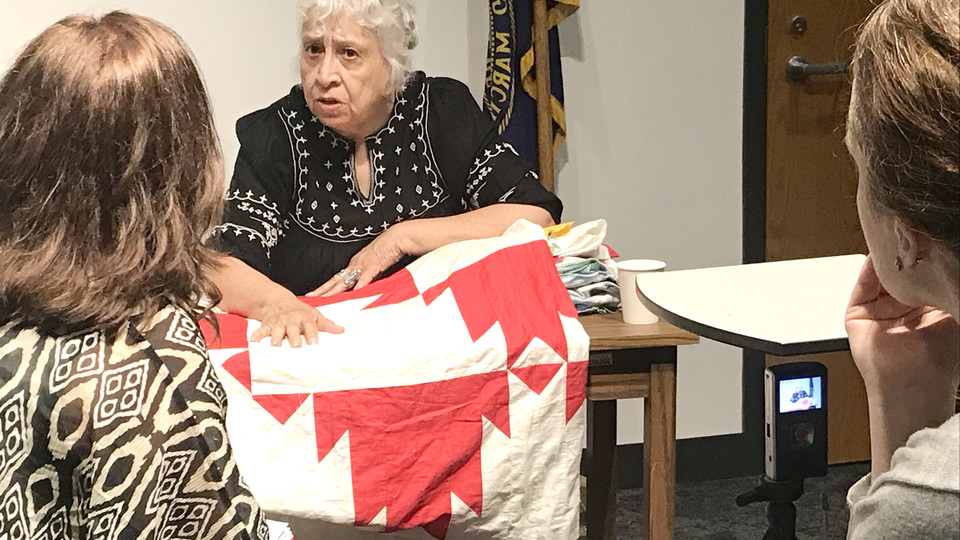Deann Gayman, June 10, 2019 | View original publication
LPS educators ready to take History Harvest into classrooms
Tucked into a corner conference room in the Nebraska History Museum, eight Lincoln Public Schools educators conducted a practice History Harvest on Nebraska quilters, and opened the door to a new kind of K-12 curriculum.
The scaled-down harvest was part of a three-day training institute held for LPS educators June 3-5 to bring History Harvest into the K-12 setting.
History Harvest was launched at the University of Nebraska–Lincoln in 2010 as a course held each year culminating in a community “harvest” where the public is invited to bring and share their historical artifacts to be documented, cataloged and digitally archived by undergraduate students. The idea has expanded to colleges and universities throughout the United States, but has not been used in a K-12 setting.
Nebraska’s Patrick Jones, associate professor of history and ethnic studies, and Aaron Johnson, assistant professor in the department of teaching, learning and education, received a grant from Humanities Without Walls in 2018 to build a program and digital toolbox for K-12 use. Graduate students Sarita Garcia, Grant Scribner and Reed Underwood rounded out the development team.
LPS was chosen as the pilot site to test the concept, and the educators attending the institute became students themselves as they learned digital archiving tools such as Omeka and how to use the malleable curriculum with a variety of ages and interests.
“We designed the curriculum to be flexible enough that they can put their own fingerprints on it because they are the experts in their classrooms, with their students,” Jones said. “We’ve just put all the resources together to help them.”
Carol Mathias, an instructor at Lincoln’s Career Academy, plans to incorporate a history harvest project as a way for her students to connect with the business community, and explore the economics of starting and maintaining a business. The Career Academy is a joint venture between LPS and Southeast Community College that provides academic and career-focused experiences to high school juniors and seniors in 16 career paths. Mathias said she likes how the history harvest builds tangible skills, which is one of the goals of the academy.
“I’ve been in this business for a quite a few years, and one thing I know is that students need more than a lecture,” she said. “This is a hands-on way to learn skills, use those skills and apply what they’re learning, while also teaching them to be active questioners and active learners.”
Jaci Kellison, LPS K-12 social studies curriculum specialist, has been working with Jones and Johnson in spreading the word and identifying teachers and librarians who could incorporate the history harvest into current LPS curriculum.
“We have targeted different grade levels first where it naturally fits, such as in fourth grade with Nebraska history, in eighth grade with early American history, and in 11th grade with 20th century American history,” Kellison said. “These are grade levels where they can do a harvest that coincides with a theme or time period they’re teaching and it’s a natural fit and it’s really easy to find the time.
“It takes more creative thinking to put it in other places, but it’s definitely doable because all of our K-12 curricula have goals of civic action and community outreach and this project ticks all of those boxes that coincide with those goals.”
Kellison said she’s excited to put what they’ve learned at the institute into practice with students in the upcoming academic year.
“For a long time at LPS, we’ve had students working with primary documents and taught skills of thinking like a historian, but what gave me goosebumps about this project is that students are a part of creating the historical record, rather than just consuming it,” Kellison said.






